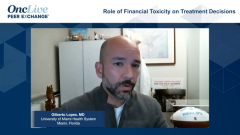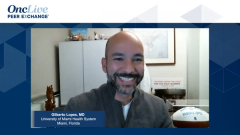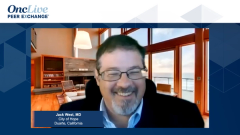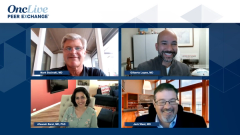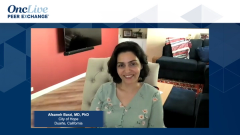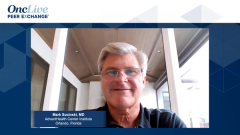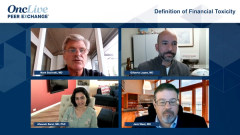
Significance of PD-L1/PD-1 Testing in NSCLC
A panel of experts in cancer treatment review the need for PD-1/PD-L1 testing for immunotherapy.
Episodes in this series

Mark Socinski, MD: Let me make a statement, and get a consensus opinion, about the significance of PD-L1 testing in this disease. I assume we all agree that it’s the standard of care. Everyone gets it.
Gilberto Lopes, MD: If they stopped doing PD-L1 tomorrow, I don’t know if I would miss it that much.
Mark Socinski, MD: That’s where I was going with this. I’ve evolved in my practice. Even if you’re greater than 50%, I want you to be greater than 90%, so what’s the true cutoff point? Many patients who fall into the indication for the 3 drugs here have lots of symptoms, and when you look at the scans and if they have a big tumor burden, they really need a response. I’m not doing single-agent immunotherapy. I’d do chemo-immunotherapy of some flavor—depending upon other factors, obviously—but I’ve said that PD-L1 is useful only for finding those 90% to 100% expressers that have relatively low-volume disease and minimal symptoms, where you might give immunotherapy too. That’s how my practice has evolved. Otherwise, everyone is getting chemotherapy–I/O [immuno-oncology] of some flavor. Does anyone disagree with that or want to challenge me on that?
Jack West, MD: Actually, I’d do it a little differently. I certainly agree with the principle that you’re never going to be wrong giving chemotherapy-immunotherapy if you don’t have a driver mutation, but we discussed that we don’t want to overtreat these people either. Pemetrexed-carboplatin-pemetrexed is a great regimen, but there’s a reason it’s not in the water supply. This is a medication that you’d want patients to get if they needed it, and not before then if they’re destined to do well on immunotherapy alone. I don’t want them to be on an ongoing vestigial pemetrexed acid and pembrolizumab [Keytruda], for 4 years potentially, when only 1 is doing the heavy lifting, and you don’t know because you automatically, reflexively gave 1. I wouldn’t hesitate if someone was losing weight on repeated visits every 2 weeks, or had escalating pain, or their scan showed that their tumor significantly grew from their initial ER [emergency department] visit that led to the start of their work-up. But if someone has pleural studding as their advanced disease and isn’t very symptomatic, I don’t think 75%, 80% of patients with high PD-L1 necessarily need to get chemotherapy pembrolizumab. I don’t know exactly what it is—it may be south of 50%—but even if it’s not a wrong choice, I’d say that you’re consigning people to a lot of gratuitous chemotherapy that may just be alligator repellent.
Gilberto Lopes, MD: We need that in Florida.
Afsaneh Barzi, MD, PhD: We have to be cognizant of the consequences of saying, “Don’t do PD-L1 testing.” Are people going to stop doing other testing? Are they going to equate that we don’t need testing? That’s not the idea. We should be careful about the talk about testing. If you say, “PD-L1 testing probably doesn’t change the treatment with regard to the immunotherapy space,” then I don’t want people to think, “Maybe we can skip testing if we don’t need it right away.” That’s 1 thing that you have to be careful about.
Transcript edited for clarity.


